Life
Sign up for our newsletter
We summarize the week's scientific breakthroughs every Thursday.
-
 Anthropology
AnthropologyA coronavirus epidemic may have hit East Asia about 25,000 years ago
An ancient viral outbreak may have left a genetic mark in East Asians that possibly influences their responses to the virus that causes COVID-19.
By Bruce Bower -
 Neuroscience
NeuroscienceSurprisingly, humans recognize joyful screams faster than fearful screams
Scientists believed we evolved to respond to alarming screams faster than non-alarming ones, but experiments show our brains may be wired differently.
-
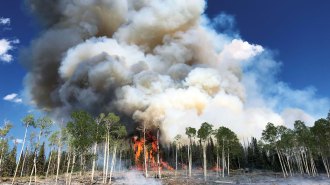 Ecosystems
EcosystemsWildfires launch microbes into the air. How big of a health risk is that?
How does wildfire smoke move bacteria and fungi — and what harm might they do to people when they get there?
By Megan Sever -
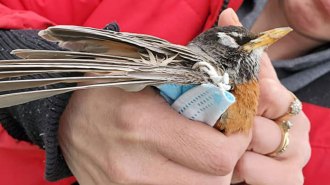 Animals
AnimalsDiscarded COVID-19 PPE such as masks can be deadly to wildlife
From entanglements to ingestion, two biologists are documenting the impact of single-use masks and gloves on animals around the world.
-
 Oceans
OceansCorals’ hidden genetic diversity corresponds to distinct lifestyles
Observation and DNA analysis expose identical reef corals as distinct species with unique ecologies, suggesting much greater coral biodiversity.
-
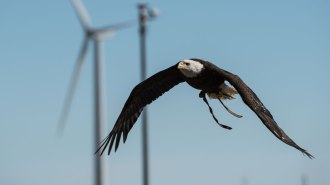 Animals
AnimalsHow researchers can keep birds safe as U.S. wind farms expand
Tracking bald eagle abundance and migrating whooping cranes provides a clearer picture of where wind turbines could be safely built.
By Jack J. Lee -
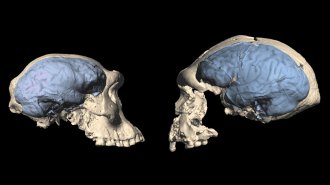 Anthropology
AnthropologyAncient humans may have had apelike brains even after leaving Africa
Modern humanlike brains may have evolved surprisingly late, about 1.7 million years ago, a new study suggests.
-
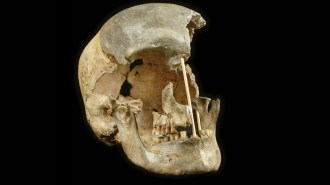 Genetics
GeneticsEurope’s oldest known humans mated with Neandertals surprisingly often
DNA from ancient fossils suggests interbreeding regularly occurred between the two species by about 45,000 years ago, two studies find.
By Bruce Bower -
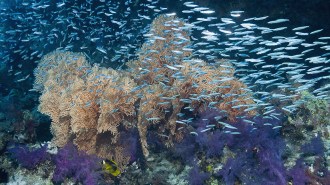 Animals
AnimalsTiny crystals give a plain fish twinkling, colorful dots under light
Fishes’ flashing photonic crystals may provide inspiration for ultra-miniaturized sensors that work in a living body.
By Susan Milius -
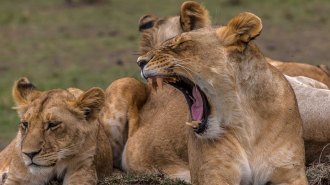 Life
LifeYawning helps lions synchronize their groups’ movements
A lion yawn is contagious, and when lions start yawning together, they start moving together. Synchronization may be key for group hunters like lions.
By Jake Buehler -
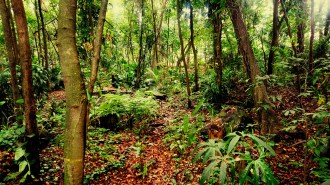 Paleontology
PaleontologyThe dinosaur-killing asteroid impact radically altered Earth’s tropical forests
The asteroid impact fundamentally reset the nature of Earth’s tropical rainforests, decreasing diversity at first and making them permanently darker.
-
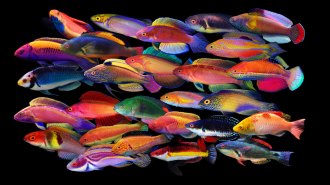 Life
LifeFlamboyant fishes evolved an explosion of color as seas rose and fell
Fluctuations in sea level due to cycling ice ages may have powered an engine in tropical seas that pumped out gaudy fish species.
By Jake Buehler